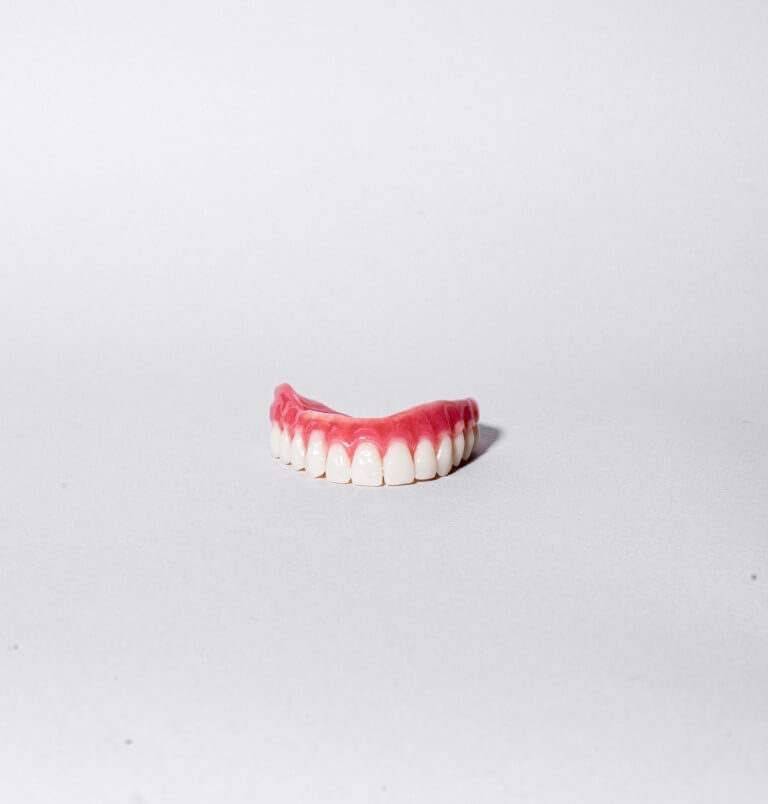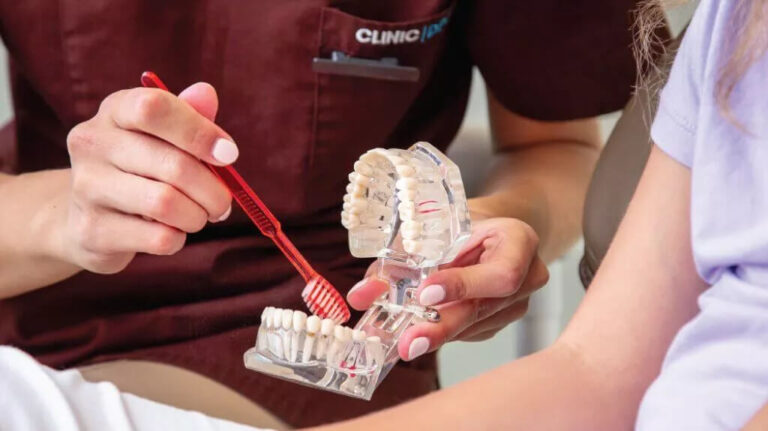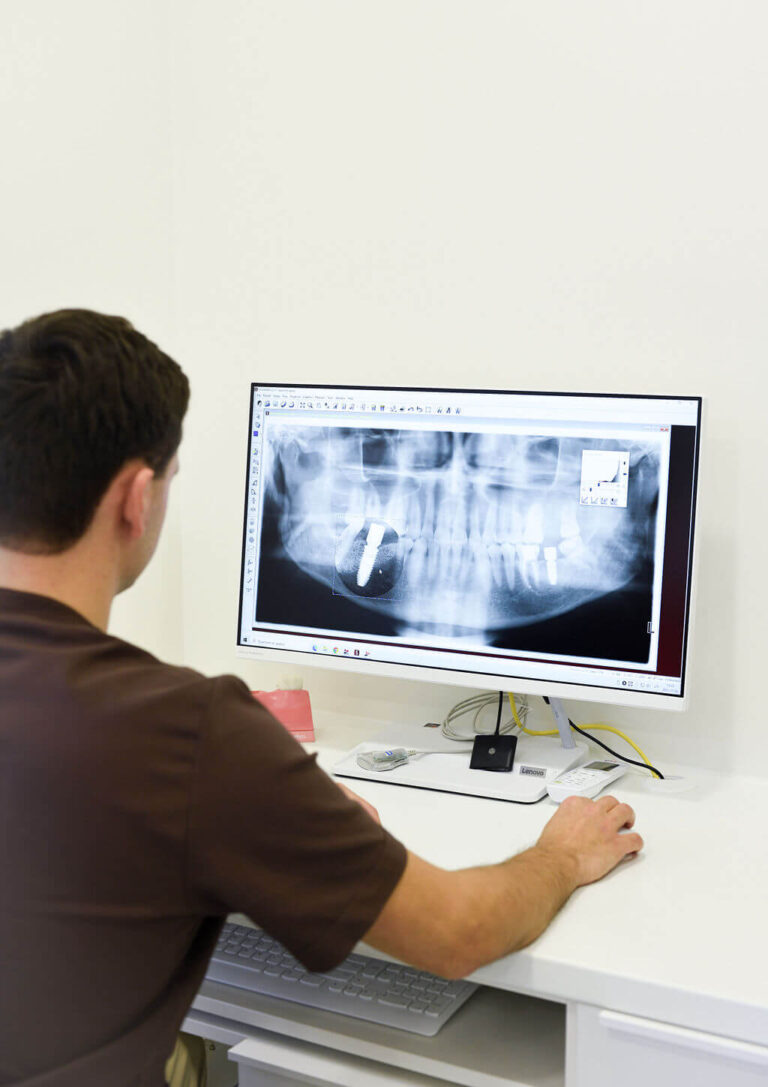Two opposing processes are constantly occurring in the oral cavity – remineralization and demineralization. During demineralization, acidic substances released by harmful bacteria weaken the protective layer of the teeth, creating the conditions for tooth decay. Remineralization is the opposite process, in which the protective layer of the teeth is strengthened by providing it with minerals such as calcium, phosphate and fluoride.
Fluoride is a chemical that is essential to protect teeth from decay and to remove decay in the early stages of the disease. Studies have shown that fluoride has a positive effect on both the color of teeth and the strengthening of the protective layer of teeth.
To maintain optimal fluoride levels in the oral cavity, it is recommended to use fluoride-containing oral hygiene products or to come to the CLINIC | DPC Dental Centre for a special fluoride treatment.
Products containing fluoride
Fluoride can be found in drinking tap water and some foods. It is also additionally available in specialized toothpastes and mouthwashes.
On the recommendation of the dentist, teeth can be remineralized with fluoride during the CLINIC | DPC treatments with professional supervision. A specialized gel or foam containing fluoride can be used during the visit. These preparations can be applied by applying them to the surface of the tooth or by using a special dental cap. Because the clinic’s treatments use a much higher concentration of fluoride than is normally found in self-care oral hygiene products, the results are often much quicker.
When is fluoride essential?
Since sufficient mineral intake is essential for the formation of milk and permanent teeth, additional fluoride intake is particularly important for children under 16 years of age. Studies also show that supplementary fluoride from self-care products has a significant beneficial effect on the prevention of tooth decay in adults.
Fluoride can also help people with xerostomia, a “dry mouth” disorder, gum disease such as periodontitis and gingivitis, and people who wear braces.
Dangerous levels of fluoride
Although large amounts of fluoride can be dangerous and cause side effects, it is very difficult to get fluoride “poisoning” when using only widely available, non-prescription oral hygiene products. The exact risk depends on a person’s weight, but the amounts of fluoride found in toothpastes and rinses are simply too low.
Children are most likely to get fluoride, so parents are encouraged to keep fluoride toothpaste out of reach of children and to use it sparingly: up to the age of 6 years, a pea-sized amount of toothpaste is enough to brush teeth.
We also recommend using a non-sweet toothpaste to reduce the amount of fluoride in your stomach – “tasty” toothpastes encourage you to swallow them.
Doctor’s recommendation
If, however, the strong enamel layer cannot be preserved and you notice the first signs of decay (tooth pain, bleeding, dark spots, deformities), we encourage you to visit your nearest CLINIC | DPC dental centre for a complete check-up. A qualified dentist will examine your teeth and provide you with an individual treatment plan.
You can make an appointment at your convenience by calling. +370 632 00005 or by sending us an email. email konsultacija@clinic.dpc.lt





